[ad_1]
Predicting the Formula 1 driver market more than a few months in advance is a fool’s errand, but team bosses and driver managers would be remiss if they did not at least try to map out a range of scenarios a year or two into the future – both in making decisions now but also in simply understanding where they stand even if there is contractual certainty.
So let’s paint a picture that is perhaps not the most likely but plausible enough:
1. Kimi Antonelli gets Mercedes seat for 2025.
2. Antonelli has started his career strongly in the W16 championship or whatever it is called, qualifying about 30% ahead of his teammate and getting one or two eye-catching results.
3. Max Verstappen is putting himself on the market through one mechanism or another, wanting to make a change because Red Bull didn’t start 2025 well or things aren’t quite convincing behind the scenes for 2026.
So… oh, right? Oh, for one person in particular – George Russell, winner of the 2024 Belgian Grand Prix by just over two hours, but also the driver who has long been assumed to be the heir apparent to the Mercedes empire.
Russell, 26, has enjoyed unprecedented success at Mercedes and is clearly well-liked and highly regarded by the team in general and by Toto Wolff in particular. But his contract – although it would not be surprising if there were some extension clauses – expires at the end of 2025.
In the modern world of Formula 1, this actually makes him something of an anomaly among the ‘franchise drivers’, with the McLaren duo, future Ferrari teammates Charles Leclerc and Lewis Hamilton, and Verstappen himself (not counting the downhills) all contracted in the new rules era.
Which is why it’s so important – in a way, perhaps more important than the car being 1.5kg lighter – that Mercedes watch him take his chance and try to hold on to the finish line in Belgium.
Mercedes’ long-term goals
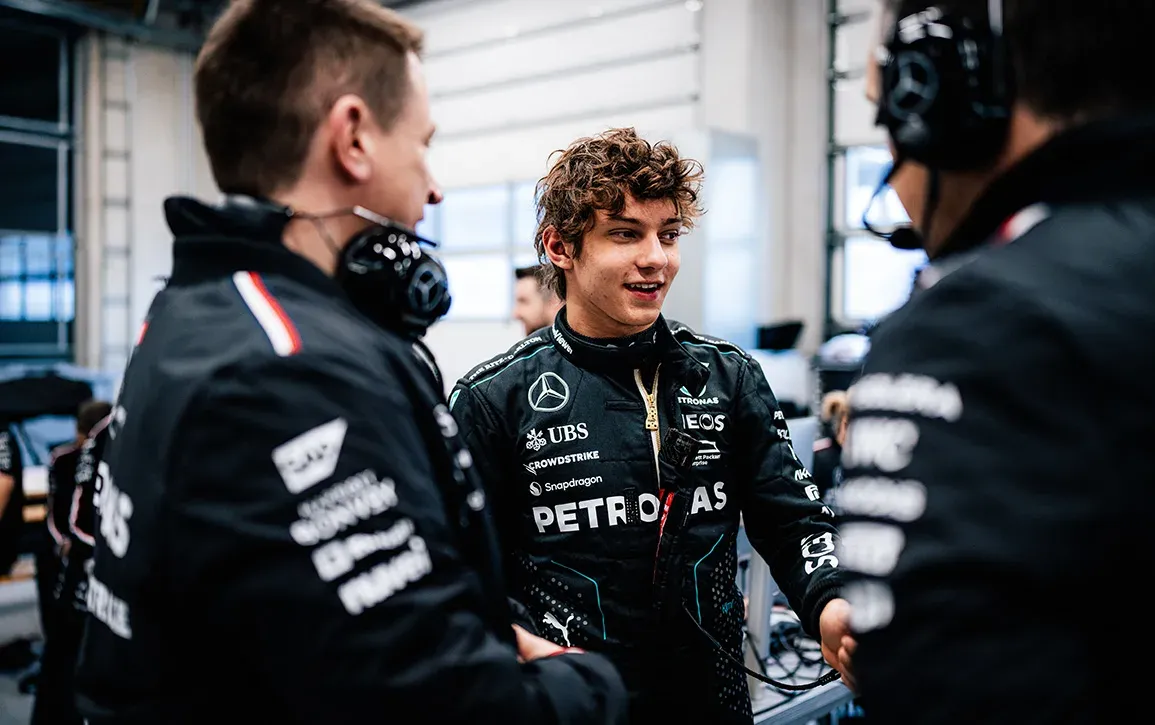
Wolff has made no secret of the fact that there will be room for Verstappen if he wants to join the team. Whether that is true for any other F1 team or not, Mercedes is the most open about it.
If Verstappen is on the market, there will be clear interest from the Silver Arrows in making it happen – and it is already known that there are people in Verstappen’s entourage who would prefer a switch to Mercedes.
But Mercedes have also made it clear that Antonelli is an indelible part of their long-term future – a home-grown option to make up for not signing Verstappen all those years ago.
Is it an insult to say that Antonelli is already a threat to Russell’s F1 record, having finished seventh in his first season in a Formula 2 championship that Russell himself won at the first attempt on what was likely a stronger grid? Perhaps to some extent, yes.
But Mercedes’ admission that Antonelli is not up to the task, as has been clearly demonstrated this F2 season despite his Prema team’s struggles, does not mean they have any real doubts. There is clearly a strong belief in his ability. There are also persistent rumours that he has impressed Mercedes with his old car testing programme.
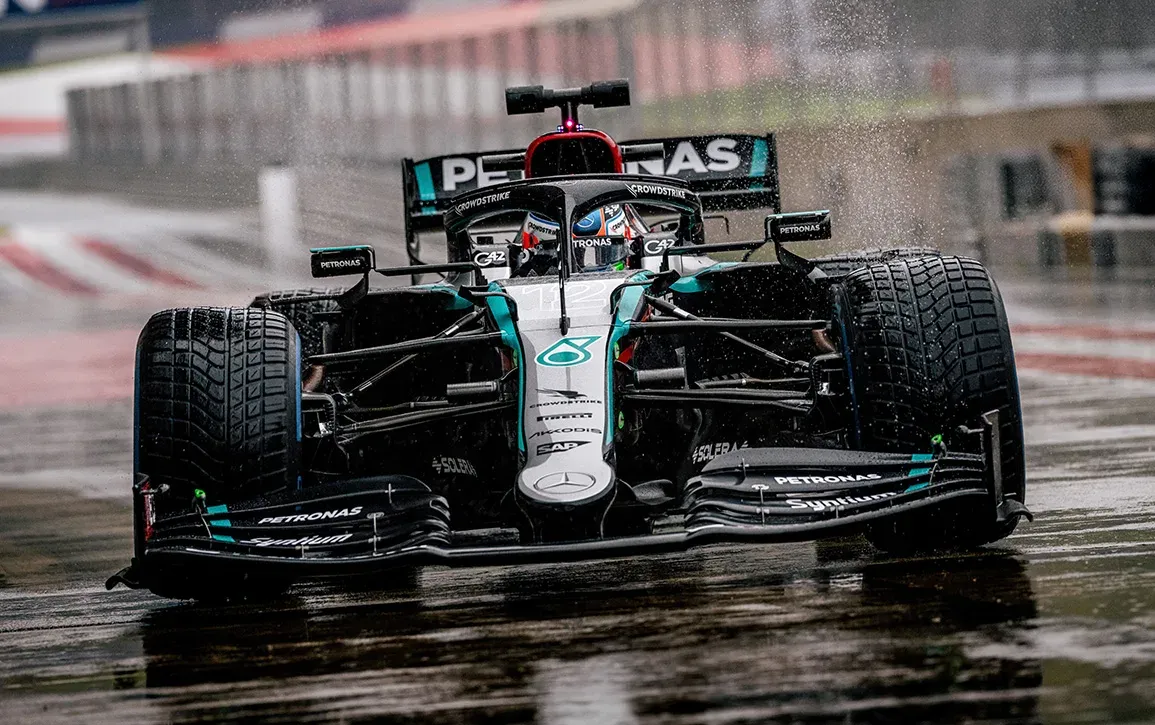
Taking this decision to its logical conclusion creates a scenario where the entire Mercedes line-up is recalibrated and Russell finds himself out of contention. Which doesn’t necessarily mean Mercedes will win. Feel Well, because – aside from the general feeling that Russell is synonymous with Mercedes at this point – Mercedes has been the picture of conservatism when it comes to its line-up since the team returned to Formula 1.
The signing of Lewis Hamilton was a coup, but Michael Schumacher pushed Mercedes into it because he was slow to decide his future. The only reason Hamilton and Nico Rosberg broke up, even though the duo was on the verge of breaking up, was because Rosberg walked away from the sport.
The fact that Valtteri Bottas has five seasons is essentially a byproduct of Russell getting a three-year deal at Williams, but Mercedes agreeing to the deal in the first place shows how content they are to let things run their course without forcing the issue when it comes to their line-up.
But because of Antonelli’s promise, it opened the door to Hamilton’s loss. Being conservative doesn’t mean he can’t be tough – after all, to get ahead of Mercedes, Russell had to overtake Esteban Ocon, who had himself overtaken Pascal Wehrlein.
A bird in the hand…
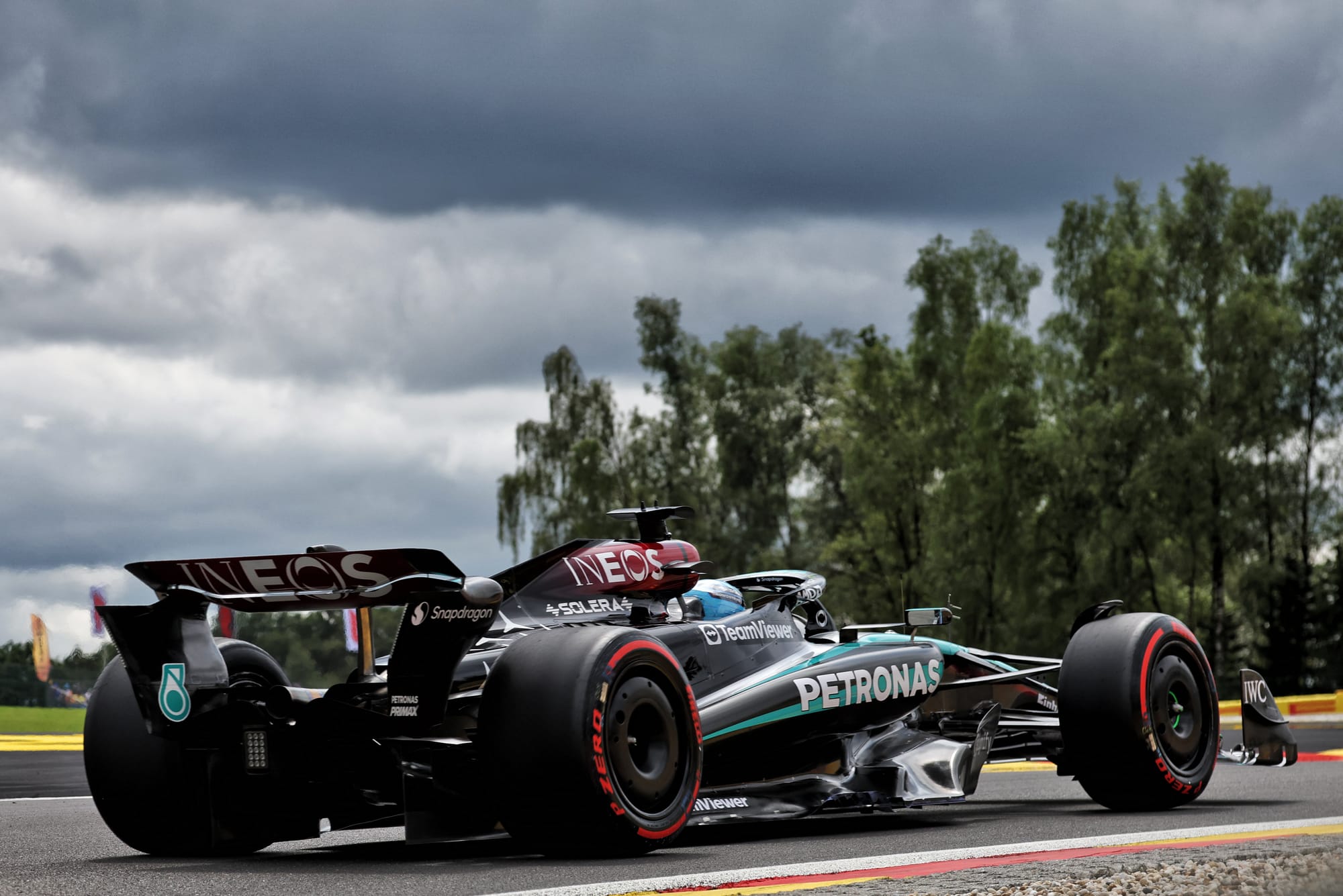
But all of this will only matter if Russell can’t make an indisputable case that he still represents the future of Mercedes.
If he can drive in a way that tells Mercedes ‘don’t you dare think about anyone else because I’m already here and I’m going to take you back to the promised land of Formula 1’, why would the company bother taking the risk of incorporating an outside option?
The good thing is that Russell is already an exceptional Formula 1 driver, one of the best ever. He has beaten Hamilton on one lap this season, and is a proven winner.
But there are still doubts about whether he has the power, a question we addressed earlier this season, after Russell let a Canadian Grand Prix win slip through his fingers.
He’s still not a multi-skilled driver like Hamilton – which, well, yes, is a comparison to the greatest driver of all time, but it’s also a comparison to the late version of that driver who Mercedes, again, deliberately left vulnerable to losing because of how passionate they were about Antonelli.
If you pick a race period on the same tyres and fuel, with no traffic, and you time it, you’ll intuitively side with Hamilton. If you pick mixed conditions – Russell is no slouch in that regard – you’ll side with Hamilton. If you pick the execution of the race – say, putting a driver on fresher tyres with five cars on older tyres to beat – you’ll side with Hamilton. The Hamilton that Mercedes are almost deliberately abandoning.
That’s a problem for Russell if there’s any perception that his progress has stalled after six seasons in Formula 1. That’s where the 2024 Belgian championship comes in.
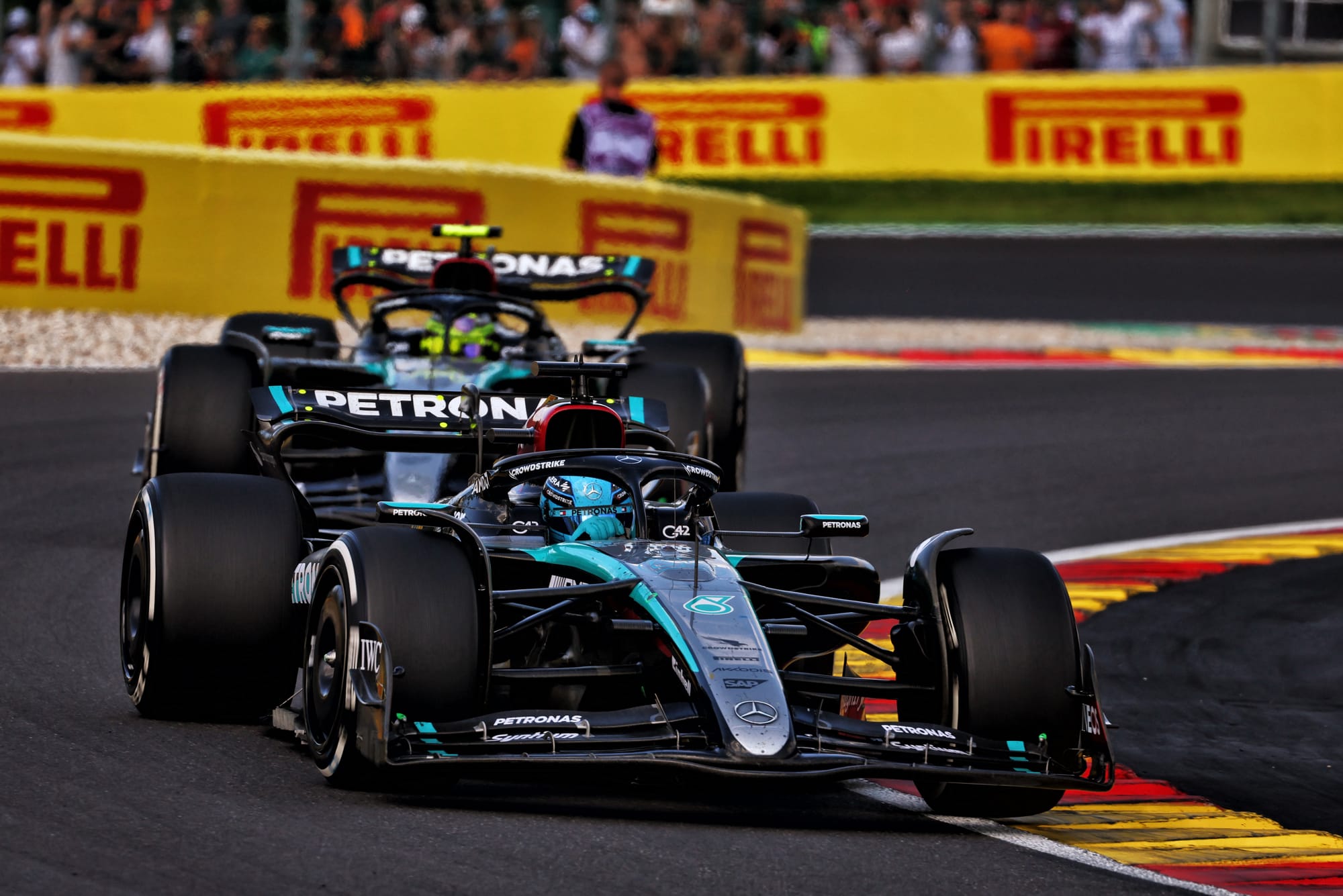
Russell saw the perfect strategy, dialed it in and executed it. He looked like easy prey as Hamilton closed in on fresh tyres, but he knew exactly where to apply pressure to ensure Hamilton couldn’t overtake him.
He put himself under pressure, the same kind of pressure that caused him to make a mistake or two in his other chases for victory, and he absorbed it.
There is indeed an argument to be made that Russell, even if he dared to attempt this strategy, bears responsibility for his own exclusion, which is nothing more than meaningless ravings. But there are more serious caveats.
The first reason is that the weight lost was a performance contributor – half a tenth or a tenth per lap, which is actually a decent amount over 44 laps but certainly wouldn’t change the nature of this particular engine as it was about track position and not minimum race time.
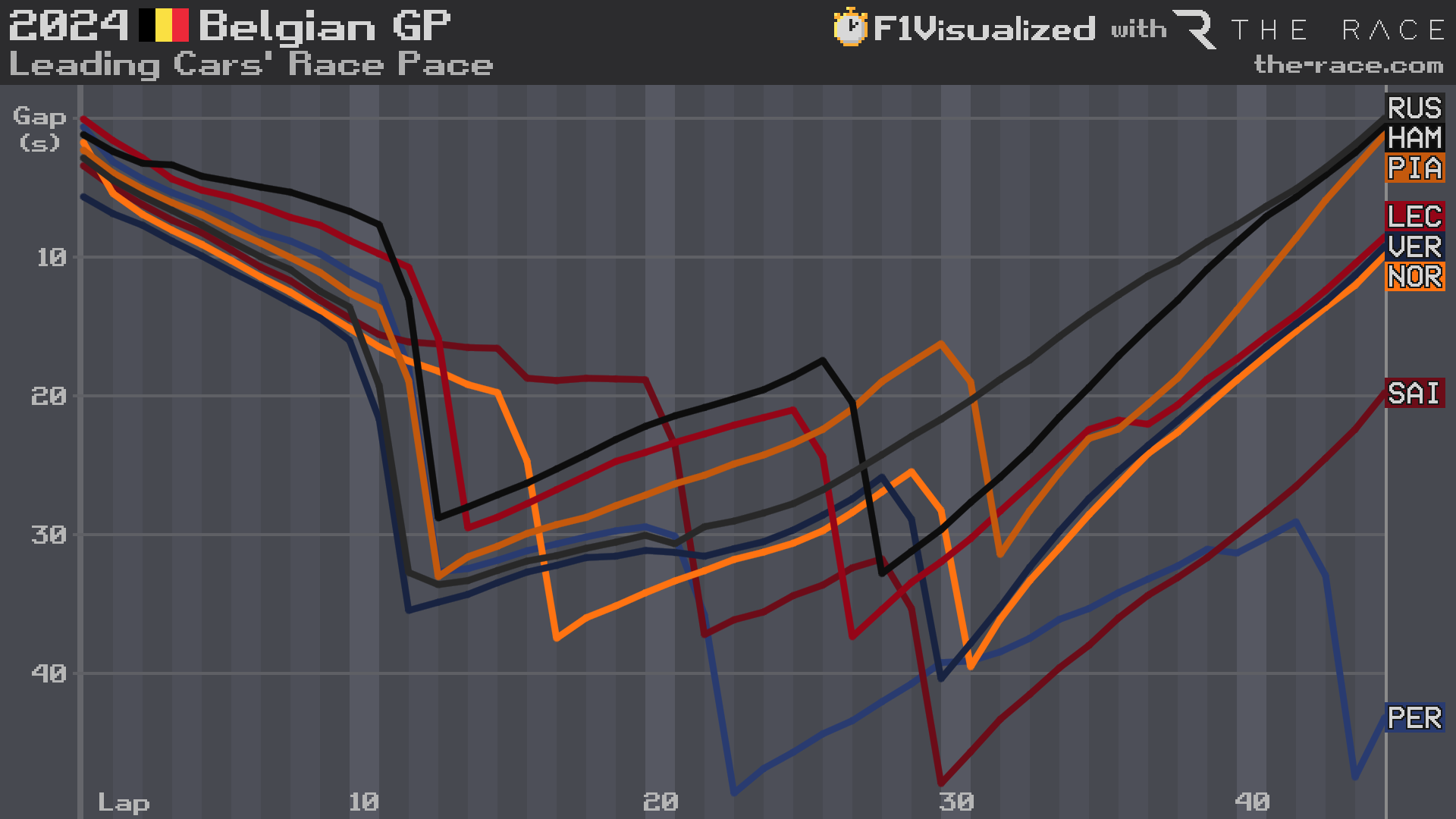
The second reason is that this wasn’t necessarily a limited-tire race, which is what made a single stop possible in the first place, so it didn’t test Russell’s management of the entire stoppage period. Although to counter that, it wasn’t like there was a dip and it wasn’t like there was no overtaking. It wasn’t like Monaco.
In the end, after losing a winnable race earlier in the season, Russell here won a theoretically unwinnable race. Then suddenly he did not do – But Mercedes clearly holds no grudge against Russell. Wolff said Mercedes “can only apologise” to Russell.
Even in a world as cruel as Formula 1, it can be very helpful if those who ultimately control your future feel, on an emotional level, that you have been wronged. It is a long-held, if entirely unverifiable, belief of mine that Charles Leclerc’s rise to Ferrari king status was actually a little quicker due to his heartbreak at the 2019 Bahrain Grand Prix and his gracious response to it than his victory in that race.
Even those who are not prone to emotionalism at Mercedes will remember seeing Russell turn nothing into a victory. And that is exactly what you would call someone like Verstappen.
The win is over, but the memory will live on. And it will at least help Russell if he ever makes a step into the free market – if Mercedes will let him get there.

[ad_2]
Source

Leave a Reply